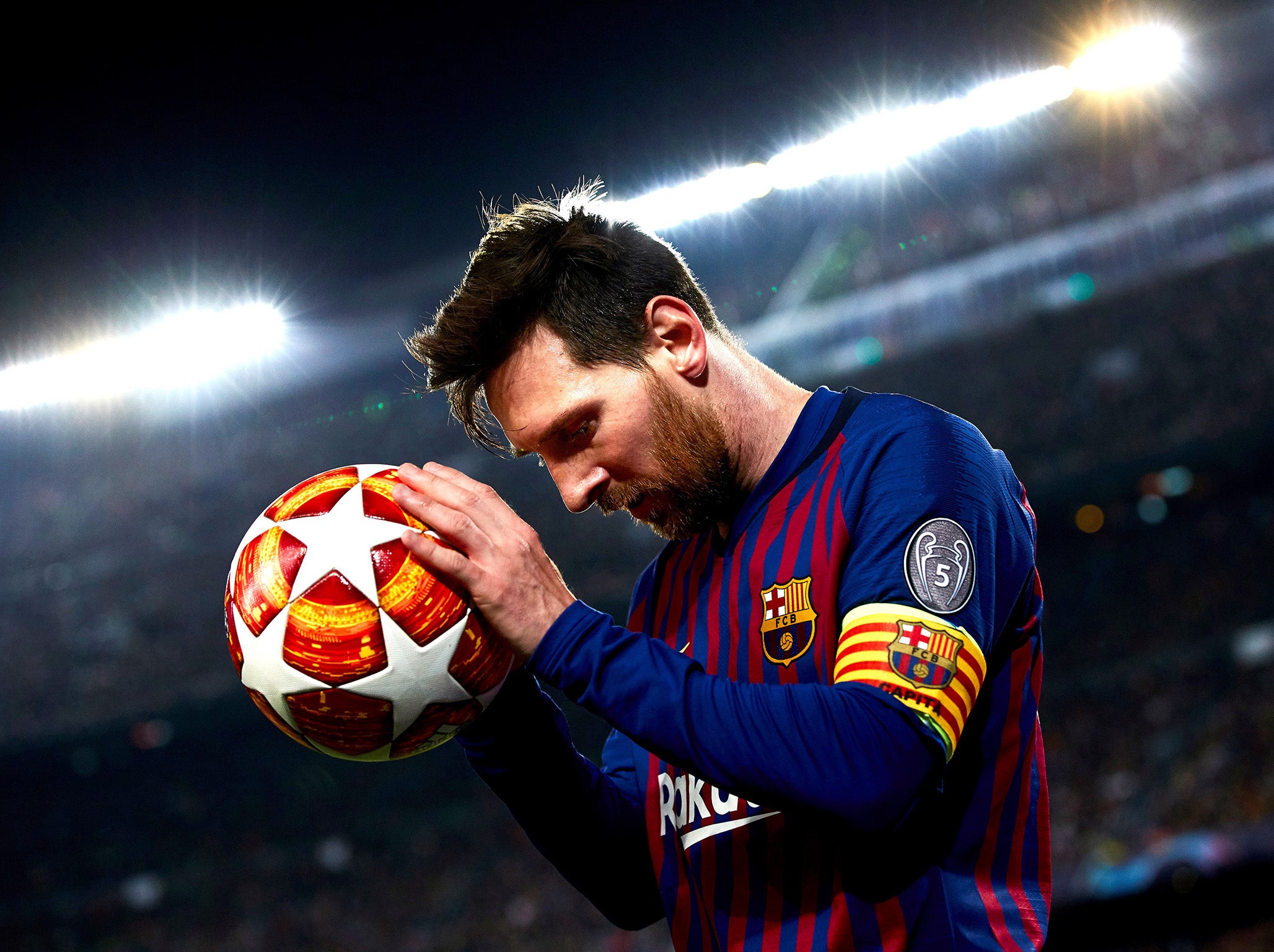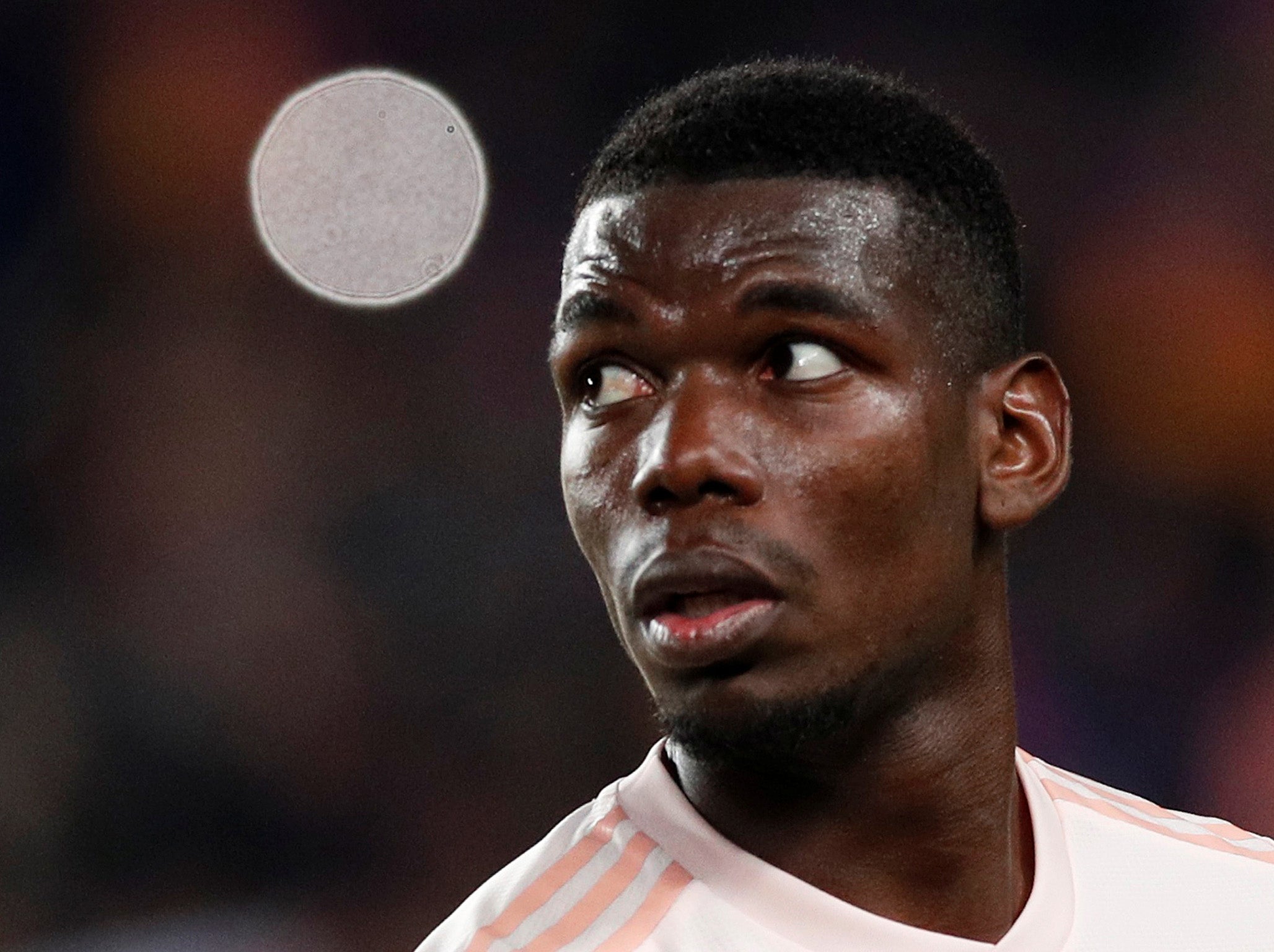Barcelona’s system trumps Manchester United’s saviours in a Champions League battle of mythologies
Unlike at Old Trafford, Barcelona’s self-mythology is based largely on a system and so its seminal successes are essentially when that system is perfected, or at least perfectly realised
“When critics of the game parade their theories about the attributes that lift certain teams above others, I am always amused by their eagerness to concentrate almost exclusively on technical and tactical comparisons. Frequently they discuss football in abstract terms, overlooking the reality that it is played by creatures of flesh and blood and feeling. Tactics are important but they don’t win football matches. Men win football matches.”
Alex Ferguson, Managing My Life (1999)
About eight minutes into this game, Paul Pogba got the ball near the halfway line. There wasn’t too much on for him, but Barcelona were making their way back after an earlier United counter, and still a little short-staffed. A chance to build something, at least. Instead, Pogba decided to shoot. From 55 yards.
About 20 minutes from the end, Ivan Rakitic was in exactly the same spot on the pitch, just over the halfway line to the right of the centre circle. Outside him, Sergi Roberto was sprinting up the wing with the sort of pace that probably made Ashley Young feel a bit nostalgic. But Rakitic didn’t pass it to him. He spun round and played it backwards instead. The Camp Nou crowd, lustful and thirsty for United blood, barracked him loudly as he did so.
A few hours earlier on Las Ramblas, Barcelona’s most famous thoroughfare, some Mancs outside a bar were singing songs about Matt Busby. It’s good to know your history, of course, but you wonder how many clubs still sing about a manager whose finest moment was half a century ago. Do Barcelona fans still sing songs about Vic Buckingham and Rinus Michels?
But then, as United supporters like to remind everyone, theirs is no ordinary club. It’s a club with a history, a pedigree, a lineage. You put on that shirt, and you’re not just slipping on a breathable fabric made in an Asian sweatshop, you’re inducting yourself into a mythology. And you can argue about whether most football clubs really mean anything beyond a vague sense of community and a stack of old programmes, but you can’t argue with 20 titles. You can’t argue with the Treble. You can’t argue with: “And Solskjaer has won it!”. United’s appeal to nostalgia is frequently ridiculed, and never more so than in recent weeks, as Solskjaer himself sought to summon the spirit of 1999, whatever that is. But let’s turn the question around: when your history as magnificent as United’s, what else are you supposed to do with it?
Interestingly, if you go back through Barcelona’s recent history, one thing that stands out is a paucity of ‘Nou Camp 1999 moments’. What’s Barcelona’s ‘night in Barcelona’? Perhaps the closest they’ve come is Ronald Koeman’s extra-time winner at Wembley in 1992. But overwhelmingly, their defining games - the 2009 and 2011 Champions League finals, the 5-0 and the 6-2 against Real Madrid - weren’t so much explosions as exhibitions. They were distinguished, above all, not by the last-minute winner or the spectacular surge, but by a 90-minute excellence, a triumph not of the moment but of the process, of the ideology, of the idea.
Perhaps this is a good way of thinking about these two garlanded superclubs. Barcelona’s self-mythology is based largely on a system - its own system - and thus its seminal successes are essentially when that system is perfected, or at least perfectly realised.
Of course they’ve enjoyed singular moments of magic and great comebacks. But these don’t feel as vital to the self-image of Barcelona as they do the team they were facing on Tuesday night. Even the world’s greatest individual talent is, to all intents and purposes, a system player. Few players are as unselfish or as tactically-minded on the ball as Lionel Messi. It’s just the perfect system, the perfect team and the perfect era for him.

United have their own mythology, but it’s subtly different. It’s based, to a far greater extent, on great moments and great individuals. The Busby Babes. The Fergie dynasty. Cantona and the Class of 92. It’s hard to imagine, by way of comparison, Barcelona lionising an individual performance in the way that United fans still talk about Roy Keane’s performance against Juventus. Of course there’s a system in place, and of course Ferguson was a great tactician. But underpinning that is something more essential: that systems and processes will only get you so far. What gets you over the line is the spark of genius, the towering individual flourish, the mastery of the situation. What gets you over the line is the moment.
In many ways, the appointment of Solskjaer fits this model perfectly. By any reasoned or empirical analysis, Solskjaer wasn’t the best coach available for the job. But he answered a more primal need: United’s lust for a new saviour, a new hero. Of course, there’s a system being (belatedly) assembled above and below him. But what gets United over the line, ultimately, is that little bit of magic that only Ole can provide. They’d been through the New Fergie saviour, the Tactical Genius saviour and the Guaranteed Winner saviour. Now they were banking on the 1999 saviour, a man with the elixir of pure United, whatever that is, in his veins.
And you know, on another night, against another team, it might have been enough. It certainly was in the last round, when United set about PSG with such spirit and certitude that their opponents spooked themselves. That’s the thing about mythologies: if you can the other team to believe in them too, you might just get somewhere.
Perhaps in another cosmos, Marcus Rashford would have put away that chance after 30 seconds. Perhaps Scott McTominay would have controlled the ball when he was clean through. Perhaps Pogba’s shot from the halfway line goes in. Imagine that. United’s frighteningly quick start would have paid stunning dividends. The caravan of dreams would have been off and running again.

There’s a certain irony in that United’s tactics here were actually sound. They moved the ball quickly and sharply, pressing Barcelona hard in midfield and looking to release the pace of Rashford and Anthony Martial. The system worked, only to be undone by individual errors and the greatest individual most of them will ever play against.
But even as Barcelona took a grip of the game and pulled clear, United were still searching for their saviour. After the first and third Barcelona goals, you could see Young shouting at his team-mates, exhorting them for more effort. As if effort and inspiration were the problem. As if they weren’t being 1999 enough. At the other end, Pogba and Jesse Lingard tried spectacular, low-percentage shots. I suppose sometimes you’re a team fuelled by mythology and enchantment and the promise of salvation. And sometimes you’re a team in the Champions League quarter-final playing Phil Jones in defence.
Into the semi-finals, then, stroll Barcelona’s well-oiled machine. United, meanwhile, have a nervy few weeks ahead. And in the longer term, the emergence and growth of the modern footballing behemoth poses a severe, even existential threat to their worldview. Can you still run a superclub on the idea of the heroic saviour? Can you still sustain a dynasty on electrifying moments? Does it matter if you’ve won 20 titles when most of your defence peaked in about 2012? Maybe the reason United are so enthralled by their mythology is that they’re petrified. That if they stripped it all away, there’d be precious little underneath.
Join our commenting forum
Join thought-provoking conversations, follow other Independent readers and see their replies
Comments